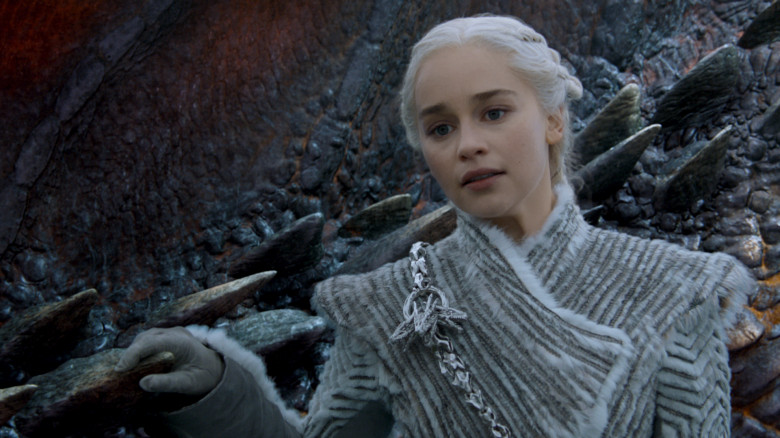
The HBO TV show Game of Thrones, like its source books, George R.R. Martin’s A Song of Ice and Fire, is classified as “fantasy,” but that term as literary classification has become unmoored from its literal meaning. A person’s fantasy is most typically a matter of wish fulfillment, which should put super-hero media at the center of the genre: We regular mortals wish to be powerful and strong, to save the day and be recognized as a hero. Certain elements of classical fantasy fall under this description: Frodo in Lord of the Rings gets to save the world while remaining more or less ordinary (well, yes, he can turn invisible with the ring, but that becomes problematic), and Harry Potter qualifies as a kid super-hero.
Another key element of fantasy is obviously the imagination, which can be deployed as in dreams and the psychedelic art that draws on dream experience to come up with ever-more-fantastical imagery, ever more amazing situations and powers one could fantasize about possessing. However, the imagination also seeks to expand the fantasized creation, to make its world wider and richer, to fill in the details, and almost inevitably to try to make the fantasy more “realistic.” What would it actually be like to have super powers? Would you suffer emotional trauma from damaging all those villains? What about collateral damage? If you get to ride on a dragon, how do you take care of it? What (who) does it eat?
George R.R. Martin writes in the tradition popularized by J.R.R. Tolkien of “high fantasy,” which involves not only characters of high stature engaged in epic struggles, but typically involves a very fleshed out alternative world with its own slightly different laws. The more spelled out these laws are, the more nuts and bolts of the workings of the world are specified, the more realism and hence suffering can be depicted. A Song of Ice and Fire describes its rotating cast of protagonists with such a degree of detail that readers are (as in much literature) able to identify with them, to see the world through their eyes, but they suffer so much that such alternate lives as these books offer readers would hardly be anyone’s fantasy in the sense of wish fulfillment. A visual presentation like a TV show by necessity can’t be as clear about whose eyes the viewer is supposed to see events through (we see through the camera instead), but nonetheless Game of Thrones invites us to live through (some of) its characters, to identify with them, through their exertions of power, through their reactions to loss and triumph. But such identifications will always be imperfect, given that these characters have been drawn as living in a world that is fundamentally foreign to us, not because there are zombies and dragons, but because HBO viewers are for the most part living comfortably in a peaceful country, not having been systematically and often personally exposed to horrible sufferings.
Hear Mark Linsenmayer and Wes Alwan, regular hosts of The Partially Examined Life Philosophy Podcast, along with guest Sabrina Weiss, discuss the psychological and social aspects of the show, but in what is depicted on screen and how these play out in our society’s relationship to this grand spectacle.
Read more about it on The Partially Examined Life website.
Mark Linsenmayer is the host of The Partially Examined Life and Nakedly Examined Music podcasts.
Related Content:
Game of Thrones: A Great Behind-the-Scenes Look at The Show’s Visual Effects
Animated Video Explores the Invented Languages of Lord of the Rings, Game of Thrones & Star Trek
15-Year-Old George R.R. Martin Writes a Fan Letter to Stan Lee & Jack Kirby (1963)


Leave a Reply